Indian chess community remembers the genius called Nasir Ali (1936-2018)
Indian chess is built upon the shoulders of great individuals who dedicated their life for the game of chess to bring it to the stature that it currently enjoys in our country. One such individual was Nasir Ali Syed from Kanpur, Uttar Pradesh. Born in 1936, Nasir Ali passed away at the age of 82 years on 29th of May 2018. He was active in the Indian chess circuit, playing tournaments, until the last days of his life. A completely self-made player, Nasir Ali started playing chess at the age of 19 and became the National Champion at the age of 31 in 1967. In this article some of the greats of Indian chess like Manuel Aaron, Pravin Thipsay and Nasir Ali's close friends remember him, his style and his immense talent and love for the game.
A legend in Indian chess 82-year-old Nasir Ali Syed passed away on the 29th May 2018. The young generation might not know him so well, but those who met him were impressed to no end. At the age of 31, Nasir Ali created huge ripples on the Indian chess scene by winning the National Championship of India in 1967. And this was ahead of some of the biggest names of that time including Manuel Aaron. In 1967, the National B and National A, both of the events were held in Pune and Nasir Ali had created some kind of a record by winning both of them!
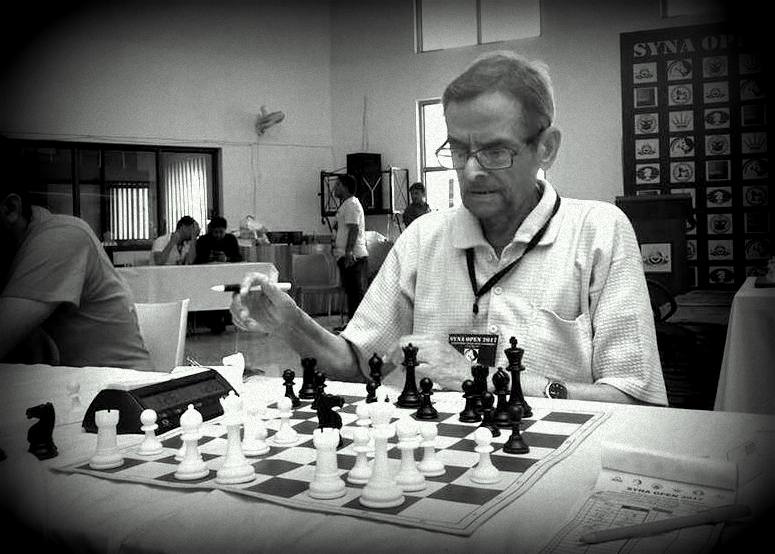
Recently, in 2016, ChessBase India published an article entitled 80-year-old Nasir Ali Syed leads in Udaipur. This octogenarian was still going strong and was leading the event with 6.5/7 ahead of four International Masters! For those who didn't know Nasir Ali, this news came as a big surprise. For those who knew him well, smiled that he still had the old magic with him! After all Nasir Ali had beaten some of the greatest Indian chess players in his time.
Nasir Ali Syed was born in Kanpur, Uttar Pradesh. His acquaintance with chess happened due to pure serendipity. Studying for his graduation exams, Nasir Ali used to go his friend's house. That friend knew how to play chess. One fine day he taught Nasir Ali the rules of the game and started playing with him. The duo played hundreds of games with each other and every single time the friend, who was better than Nasir Ali, would beat him. "You will never be able to beat me!", these words said by his friend stung Nasir and he decided to work harder on his game. He tried to find new playing partners and took part in any chess event that was happening in Kanpur. Naturally his chess strength began to grow. Next time when Nasir Ali met his friend, he beat him sqaure and fair. The satisfaction was immense and with it came the thought, If I could beat him, I can beat anyone! Nasir Ali believed in his abilities, worked hard, won many tournaments in India and became the National Champion in 1967. Nasir Ali's highest Elo rating was 2385. He couldn't achieve his IM title because of the lack of opportunities.
Since the day, Nasir Ali passed away I called and messaged many of his friends and acquaintances. One thing which I could gather from just about everyone was his love for analysis. Nasir Ali improved by analyzing with his opponents and friends. He could analyze a chess position for hours. Finding the correct way to play in a position was the most important for him.
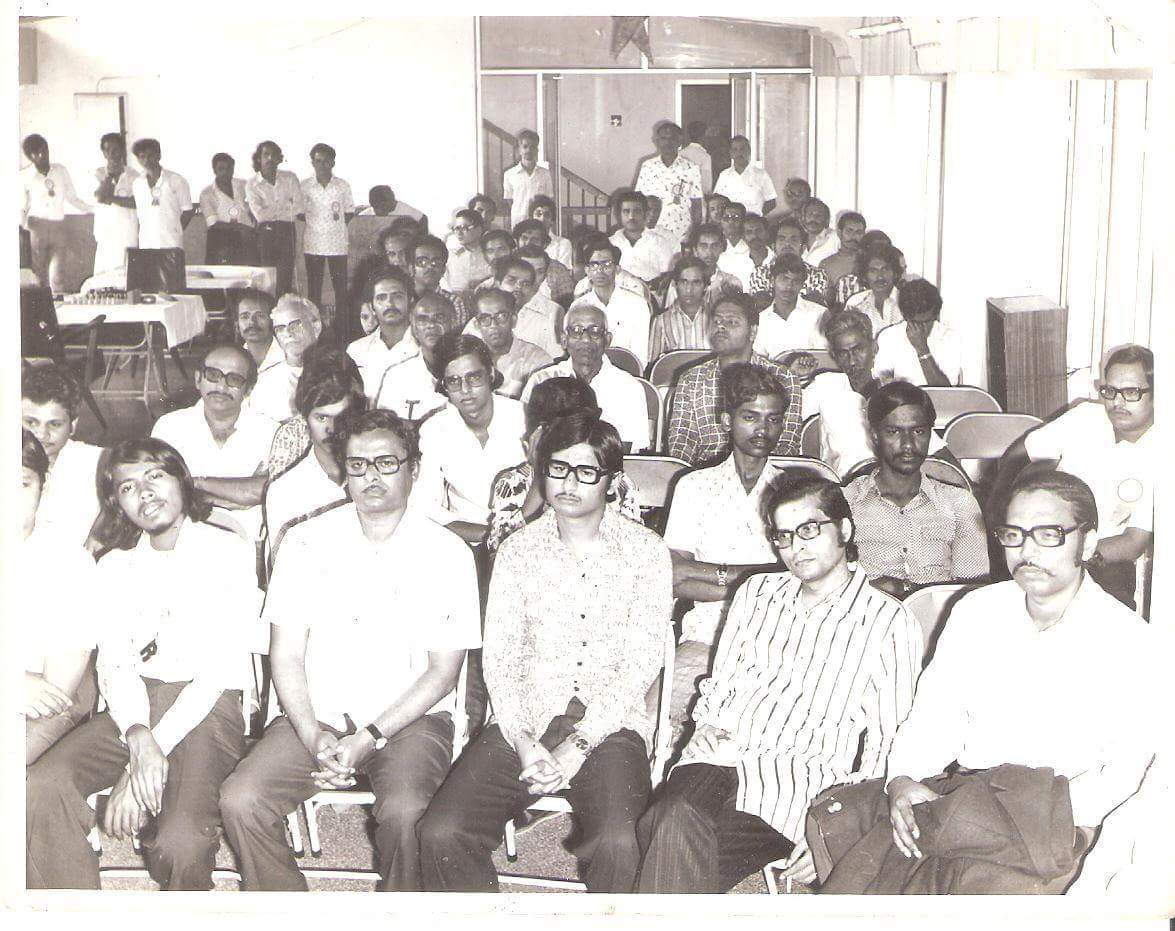

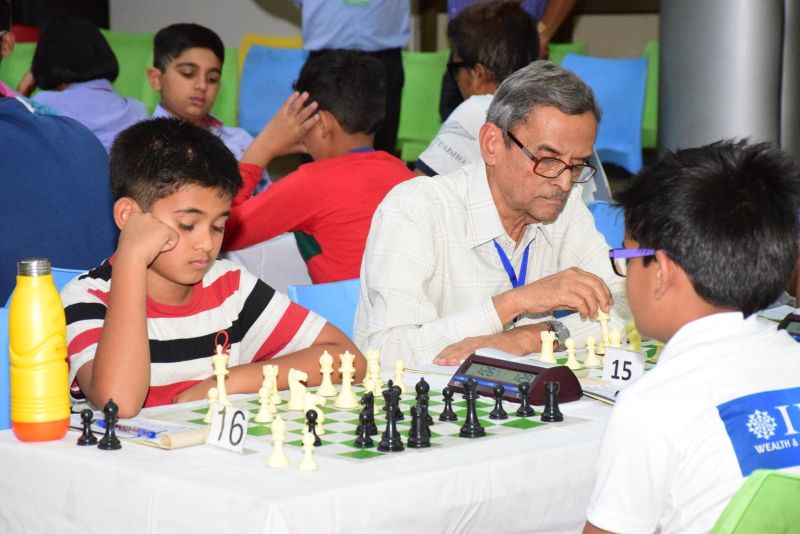
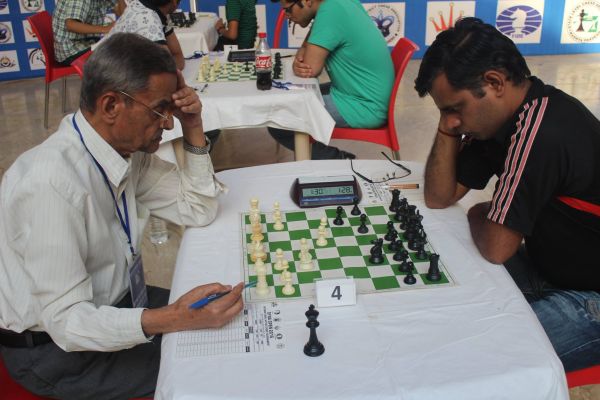
Speaking about the above game GM Himanshu Sharma says, "I remember few things while playing with him. His active moves without taking much time. His assessment towards the position during critical moments was adequate. And he generally did not hesitate to play sharp moves. I remember one of his wins over GM Saptarshi Roy. He sacrificed his pawns and won in the endgame showing beautiful display of forces. That was just wonderful."
IM Manuel Aaron:
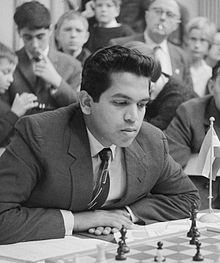
"He (Nasir Ali) was born in the wrong place! What else to say! Otherwise a talent like Nasir Ali should definitely have become an IM. Although Kanpur was the center of chess in north India, there was absolutely no one who backed Nasir Ali. For example when I became a strong player, the second secretary of AICF S.K. Narasimhan supported me by bringing the Asian Zonals to Madras, where I proved myself and became an International Master. A player like Nasir Ali needed such opportunities to prove himself. In fact when working on the book Indian Chess History I realized that there were so many players in Indian chess like Ramdas Gupta, R.B. Sapre, Pabitra Mohanty, A.K. Sinha and many others who had so much talent but couldn't become IMs because of lack of opportunities.
I think I won most of my games against Nasir Ali. I remember his slow motion hand movement. His hand hovering one feet above the board and then the speed increasing as he would execute the move. Nasir Ali always wanted to play to the spectators. He wanted fans to follow him and hence many times he would sacrifice material without reason just to make sure that the spectators had a good time. Of course, he lost many games because of this. Once in 1972 Asian Zonals in Iran, Nasir Ali was a playing top Iranian player and a lot of spectators had come to see the game. Nasir sacrificed material, lost the game and later in the room told me that there were so many people who had come to watch the game, how could I not sacrifice!
When he joined CRPF, he came under the guidance of Mr. Varma. I think that was his best opportunity to become an International Master. I am surprised as to why he couldn't become one."
Neeraj Kumar Mishra:
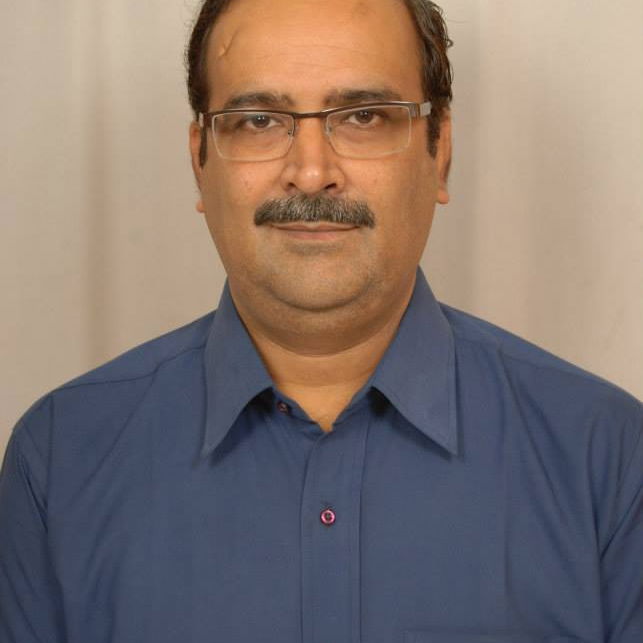
"Nasir Sir was very useful as analysis partner, as he was sort of a player who had a vast repertoire. I never saw him under time pressure and whatever the situation, he used to make move in a slow motion mode. I can tell you what one of the visiting GM in Bhilwara GM tournament was asked about: Whom would he rate as the most talented players among the Indians? Indian players included Barua, Thipsay, Raja Ravisekhar, Parameswaran, V. Ravikumar, Koshy, Nasir Ali and Ashok Alexander. The GM's instant reply was Mr. Nasir Ali. It is also interesting that some of the Indian participants who played in that tournament are now GMs!"
Ed - Any guesses on who that International GM was? Let GM Pravin Thipsay tell you:
GM Pravin Thipsay:
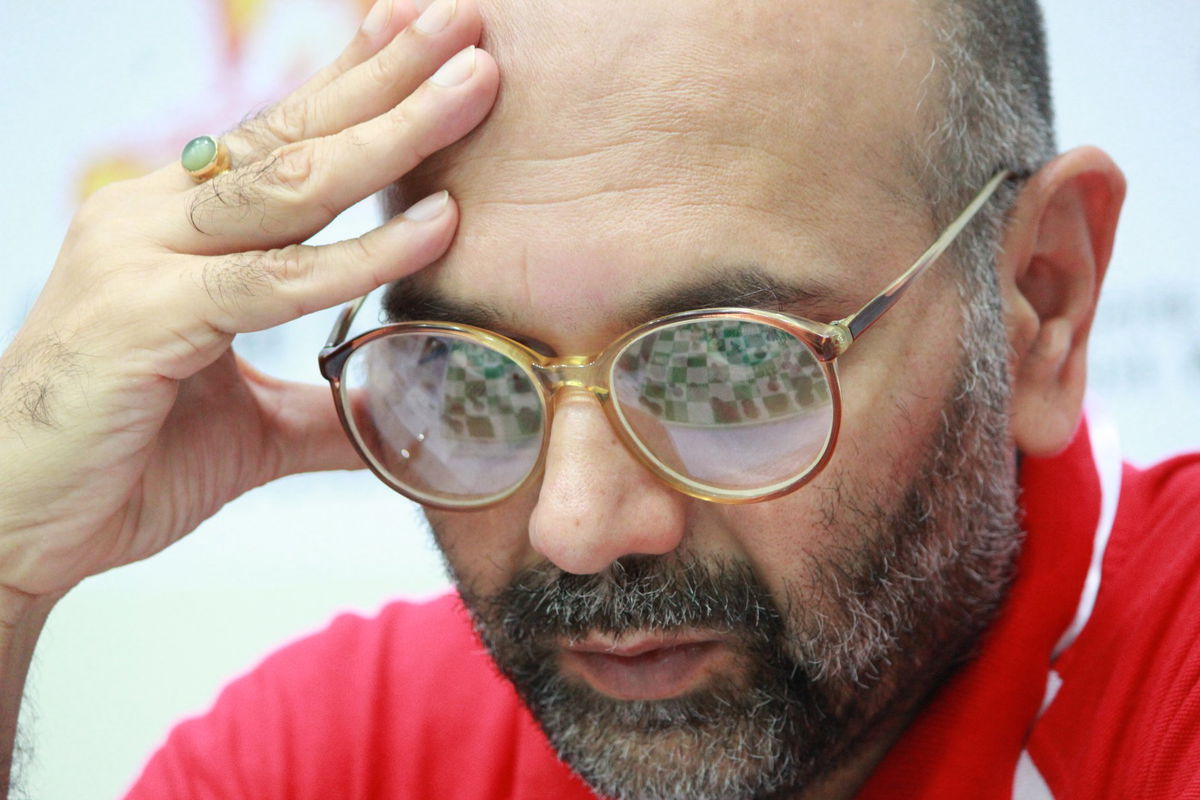
"I first met Nasir Ali in 1976 in when he had come to play in the famous Girgaum open chess tournament in Mumbai. Though I emerged as the surprise winner of this all time strong Indian Tournament ahead of 4 National Champions (Manuel Aaron, Nasir Ali, Raja Ravisekhar & Rusi Madan), my only loss in the event was against Nasir Ali. He was the first player to win both National B and National A in 1967 in Pune.
Nasir Ali had a unique technical style of play. He had a deep understanding of Queen pawn openings which he played. For several years, he was a member of Indian team and one of the most feared opponents in National A. Due to his rapid speed of play and ability to crush opponents technically even with very small technical advantage, he was a terror among bookish players.
He was the only Indian who beat Mohammad Hasan regularly with black pieces, often in opening like Queen's Indian. Nasir Ali was an intuitive and impulsive player throughout his active career years. He didn't have any friends among chess players but he had a very great fan following all over the country. He had a systematic mind and a sharp memory. In the 70s, he learnt the Tamil script (without knowing a single word of the language) just to read the boards on state transport buses and shops.
When he had started fading away, he got a second chance by way of an offer to join CRPF, wherein he got the opportunity of studying chess. We were colleagues in CRPF for 2 years, 1981 to 1983, during which we came close. Nasir Ali was able to polish his style during his service in CRPF to a great extent and even improved considerably in the endgame. His joining CRPF moulded his playing style very similar to Rubinstein.
However, due his positional brilliance, he chose to ignore tactics and was often found himself losing from better positions. He was a great master of the Breyer Spanish and the Queen's Indian with Black. With White he played very powerfully against the Slav Defence and Queen's Gambit Declined. He couldn't understand the dynamics of the Grunfeld and King's Indian any time though.
In the strongest ever closed tournament of India Bhilwara International, New Delhi 1982, he was identified as the MOST TALENTED INDIAN PLAYER BY JOSIP DORFMAN. (Taimanov, whom I beat felt that I was the most talented, while Kupreichik who had lost to Barua felt the same about Barua.)
Nasir Ali could have done much better if he had tried to acquire tactical skills. But he found tactics a cheap way of winning a game and even found them boring. All that said, all of us can agree to the fact that he was an absolutely self made player.
IM Vargheese Koshy:
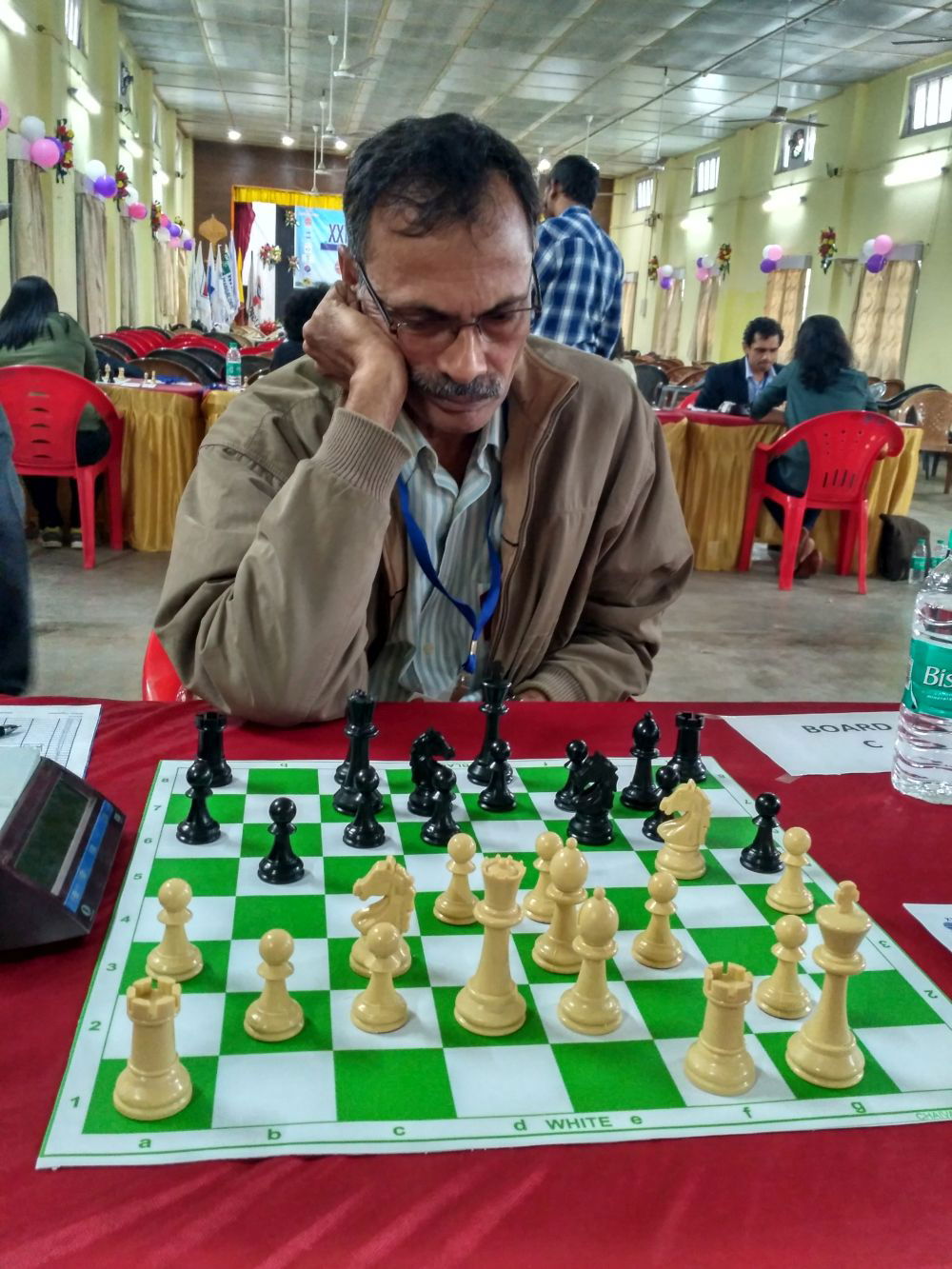
I joined CRPF in 1980, Nasir Ali joined in 81-82. We spent nearly two and a half years together in Mount Abu. I can say that he was a wonderful player. He had this skill for initiative and played really fast based on his positional intuition. Anand came much later, before him it was Nasir Ali who bamboozled everyone with his speed of play. It was only because of lack of opportunities that he couldn't become a GM, at the very least an IM. I would say he was more talented than every other chess player of his generation, even Manuel Aaron. Aaron was methodical in the way he worked, but Nasir Ali was a pure talent.
Nasir Ali was known for his slow hand movement! He didn't do it deliberately. He was just so deep in thought while making his moves. I learnt a lot from him even off the board. He had a very simple way of living his life. He would not waste anything. The right word that I am looking for is "Frugal". He would never complain about anything. Often we would be travelling by train and it would be extremely hot. But Nasir Ali would be happily sitting on the side reading a book. He was a satisfied soul. Chess mil jaaye toh he was happy (He was happy if he got to play chess!).
The last that I saw him was in 2010 or 11 when he was playing against a young boy in Mumbai. I was playing on the adjoining board against the very talented 8-year-old Abhimanyu Puranik. Nasir Ali had a better position and somehow lost the game. His opponent was hardly interested in analyzing, so he ran away. Nasir Ali sat down there alone and began analyzing his game for hours. When I finished my game (I drew from a better position) and went up to him, he said, "Arey Koshy, come and sit down. I cannot believe how I lost this game!" And we analyzed. That was the last interaction I had with him. India has truly lost one of the greatest chess players ever."
IA Venkatachalam Kameswaran:
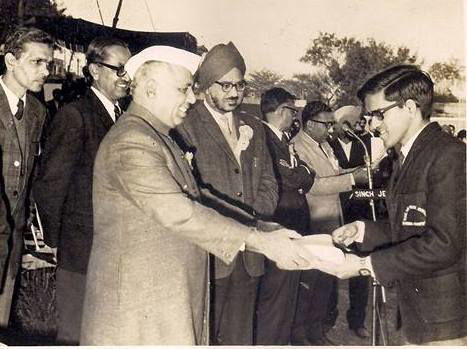
"From early seventies I met Nasir Ali several times playing with him, and receiving him and taking care of him as an official. When late Verma (Ex-AICF President) was so keen for the welfare of players, he consulted Aaron, Ghalib and me. Nasir Ali, Thipsay, Koshy, M.J.Ismail, A., Pavanasam, O.S.Shankar and other were recruited for CRPF. At that time no instittution was that much interested. I still remember Nasir won the Challengers Chess Congress, Madras in the final beating Manuel Aaron. This league cum knock out tournament, a rarity even now, had M.R.Wahi, N.Ghalib, S.D.Sahalkar, R.Vijayaraghvan and me.
Nasir always considered Tamil Nadu as his chess hunting ground. His chess tour included Palani, Sivakasi, Coimbatore, Pollachi, Trichy etc. besides Madras. In a Tal Club tournament , I drew with him. A pleasing personality, a soft spoken, man of few words, patting youngsters etc. still reeling like cine movie before me. A man of contention and never inclined to seek alms. The Indian chess lost a noble chess soul. A true chess gentleman. May his soul rest in peace."
IM Sharad Tilak
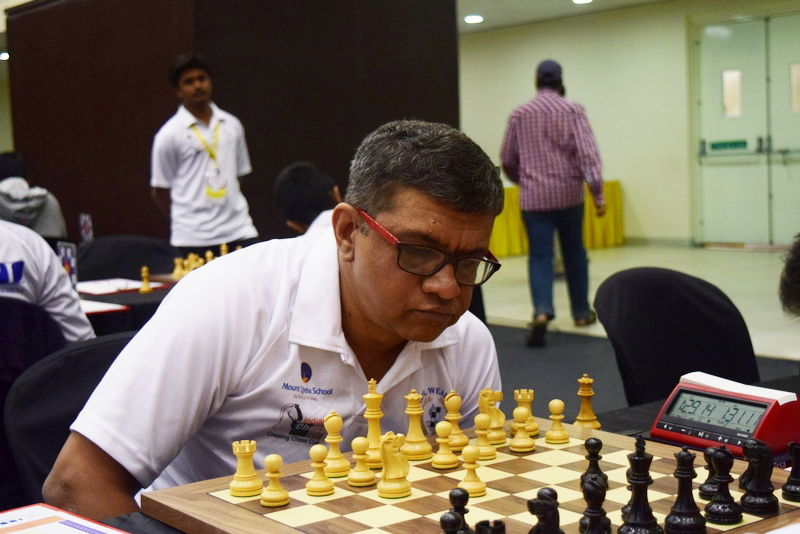
Nasir Ali was like Ivanchuk. If it was his day he could beat the best in the business. When Nasir Ali was developing as a player he used to play in his community in Kanpur and when a player would sacrifice material, you couldn't really think as everyone would just force you to take the material that was being offered. They would laugh if you thought when material was offered and not taken. I think this developed his playing style and even later he would take all the material that was offered to him and then defend staunchly. I can only say that Indian chess lost a big talent with the passing away of Nasir Ali.
GM Sriram Jha:
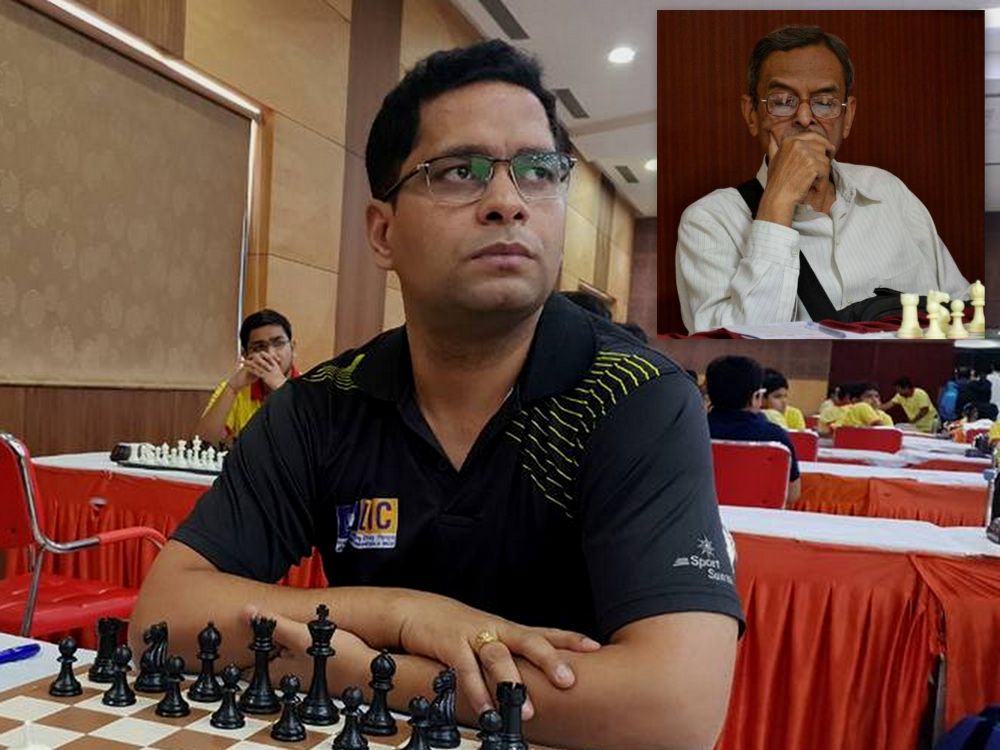
"A whole era in Indian Chess has ended with the passing of Mr Nasir Ali. It is a huge personal loss for me also as he was my trainer in my formative years. He is one of the strongest players that I have ever played, even though he did not have a chess title. After the legendary Mir Sultan Khan he was the strongest Muslim player that India has ever ever seen.
He was working with CRPF and was posted as a pharmacist at CRPF camp which was around 5 kms from my house in Delhi. He was there for close to 4 years. I was quiet young at that time. 12 years to be precise. My father came to know that he is posted near our house and started taking me there. We used to cycle 5 kms on weekends to go to his house and we used to play the whole day. When I won my first practice game against him after many weeks of going to his house, he announced that now he will come to my house from next week and from then on he came to my place.
The last bus from my house to CRPF camp was around 8.30 in the night and I remember that it was a very tensed time for my parents as the game was always on till 8.25 or so and it was forbidden to disturb him during the game! Obviously he was much much stronger than me but he never showed any hesitation to play against me.
We played thousands of games over a period of 4 years. Whatever little I know of positional chess, I owe to those countless games I played against him. Our mode of practice was mainly playing a series of games. On the rare occasions when I used to win, then those games will be analysed for hours together until a win for Mr Nasir Ali was found!
We had little contact after he retired from CRPF and shifted to Kanpur but I always had deep respect and admiration for him. He was the most passionate chess player that I have ever known. He was most gentle and soft spoken at all times.I had never seen him talking in a high pitch voice. He had the most ideal temperament for a great chess player, almost like a Saint. His way of playing his moves is most famous in Indian Chess circles. He will never ever bang his pieces or clock and played his moves in the most calm manner. If you offer him a pawn he will always always take it and will defend his position with all his might.
He was playing very actively until the very last days of his life. I lost to him quiet recently in a FIDE Rated tournament in Allahabad without getting any chances throughout the game. If given proper support in his younger years he would have surely become a very strong grandmaster. Indian Chess has lost one of its finest Ambassador's today. It was a pleasure and an honor to have known him. Rest In Peace."
IM Vishal Sareen:
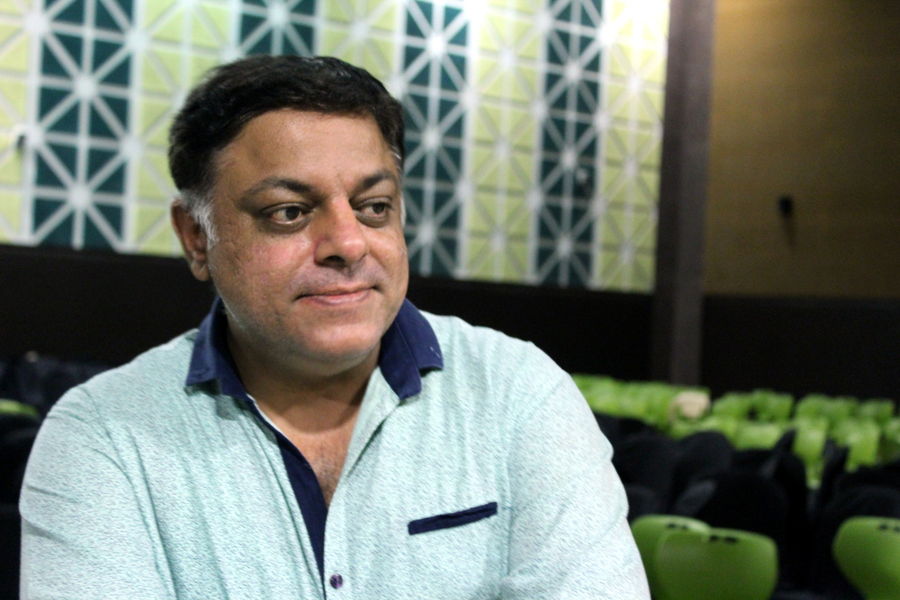
“Nasir Saab was always my uncle. I first met him in 1985 where he was part of a training camp at Mount Abu. It is hard to forget the way he played chess. An amazing gentleman. I remember once during a tournament a fellow spectator was overwhelmed and offered him money for having played a beautiful game! He instantly made fans. The stories I heard are mesmerizing. In one instance, Informator was one of the few books available and once it arrived every six months, Nasir Saab would sit down and see every game. He simply refused to get up till he saw those seven hundred odd games.
He was a super master, a class unto himself. Unfortunately born in an era when chess did not enjoy any prominence. More recently, he played in Delhi frequently. We all thought it was a favour that Nasir Saab had agreed to play in our tournaments. His legacy will remain forever. Personally, I liked him a lot. I grew up meeting him several times. Hearing stories about him from fellow chess players who played at the top in his era. May he rest in peace!”
GM Swapnil Dhopade:
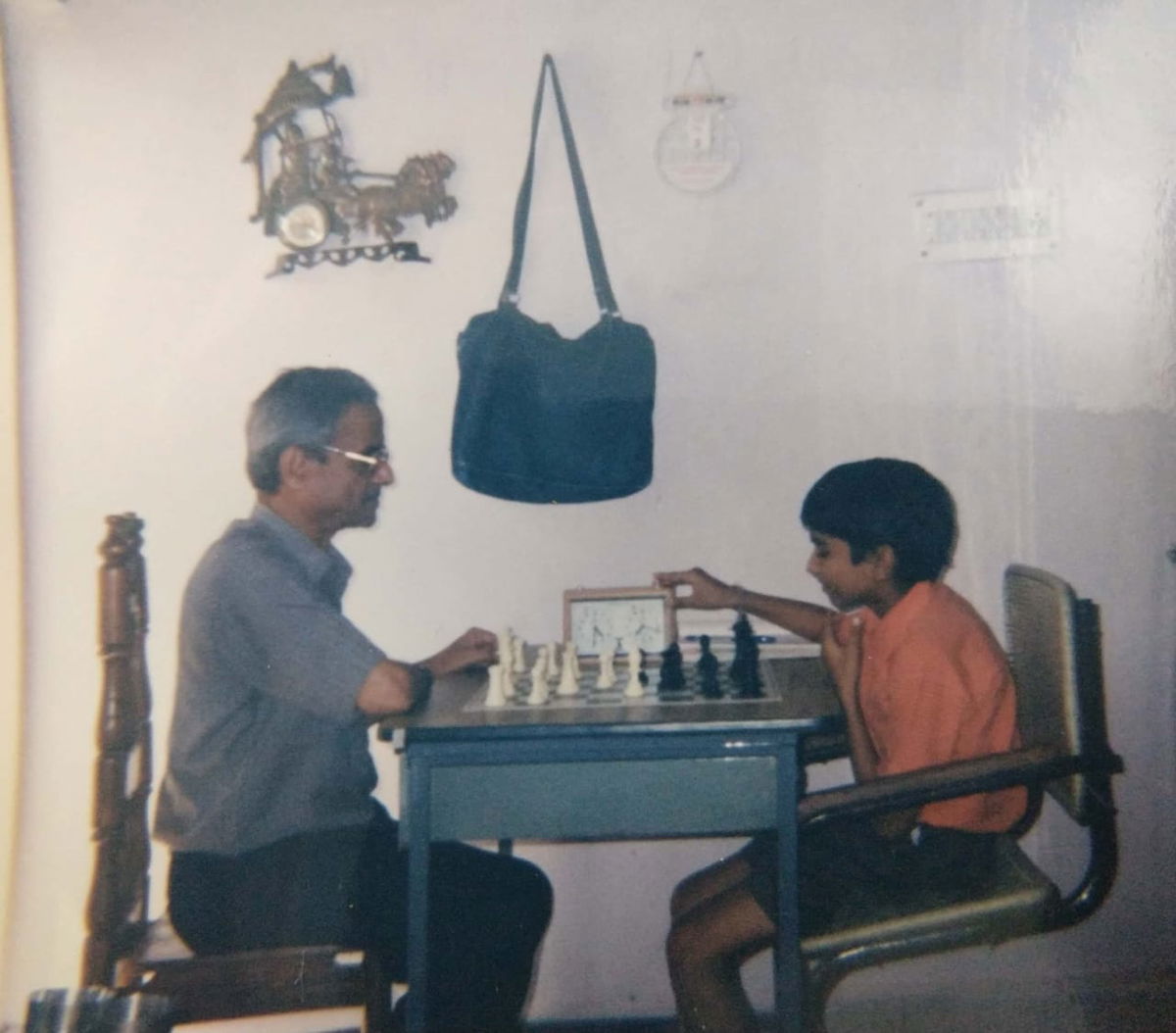
"My first coach was Om Prakash Kakra. He was from Uttar Pradesh. When I started to improve as a player he recommended that I should work with Nasir Ali who was from the same state as him. For a 12-year-old like me it would be an honour to work with a player like Nasir Ali, who had been a former national champion. My family and I agreed and Om Prakash Kakra was able to convince Nasir Ali to work with me for 15-20 days by staying at my place. When Nasir Ali arrived we got to know what a nice person he was. Immediately, everyone in my family started to like him a lot. 15-20 days turned into a month and I learnt a lot from him.
Our main way of working on chess was to play a lot of practice games and then analyze them. He would often give me positions in which I would have a positional advantage or I would be materially up. Many times he would be completely lost, but defend tenaciously with all his might. I would not be able to breakthrough and win the game and used to get really frustrated. In all of this I learnt two very important lessons - 1. How to analyze a game and 2. never give up spirit. I think these two qualities are seen in me in ample measure as a chess player. I learnt them from Nasir Ali. He had a strong intuition and used to play fast. In the games where I was able to beat him, we would play again until a defence was found for him!
He placed a lot of emphasis on physical fitness and like to jog. But somehow he liked to do everything in slow motion! Right from playing his moves, to jogging to eating food, all of his actions were very smooth! One of the most memorable incidents for me was when in this one month training session we went to DSO inter-school division tournament in Khamgaon. Nasir Ali came with me as my trainer and I won that tournament. The organizers at the tournament recognized him and felicitated him! It is a very pleasant memory for me. I thank Nasir Ali sir for all that he has taught me when I was just a 12-year-old boy."
IM D.K. Sharma:
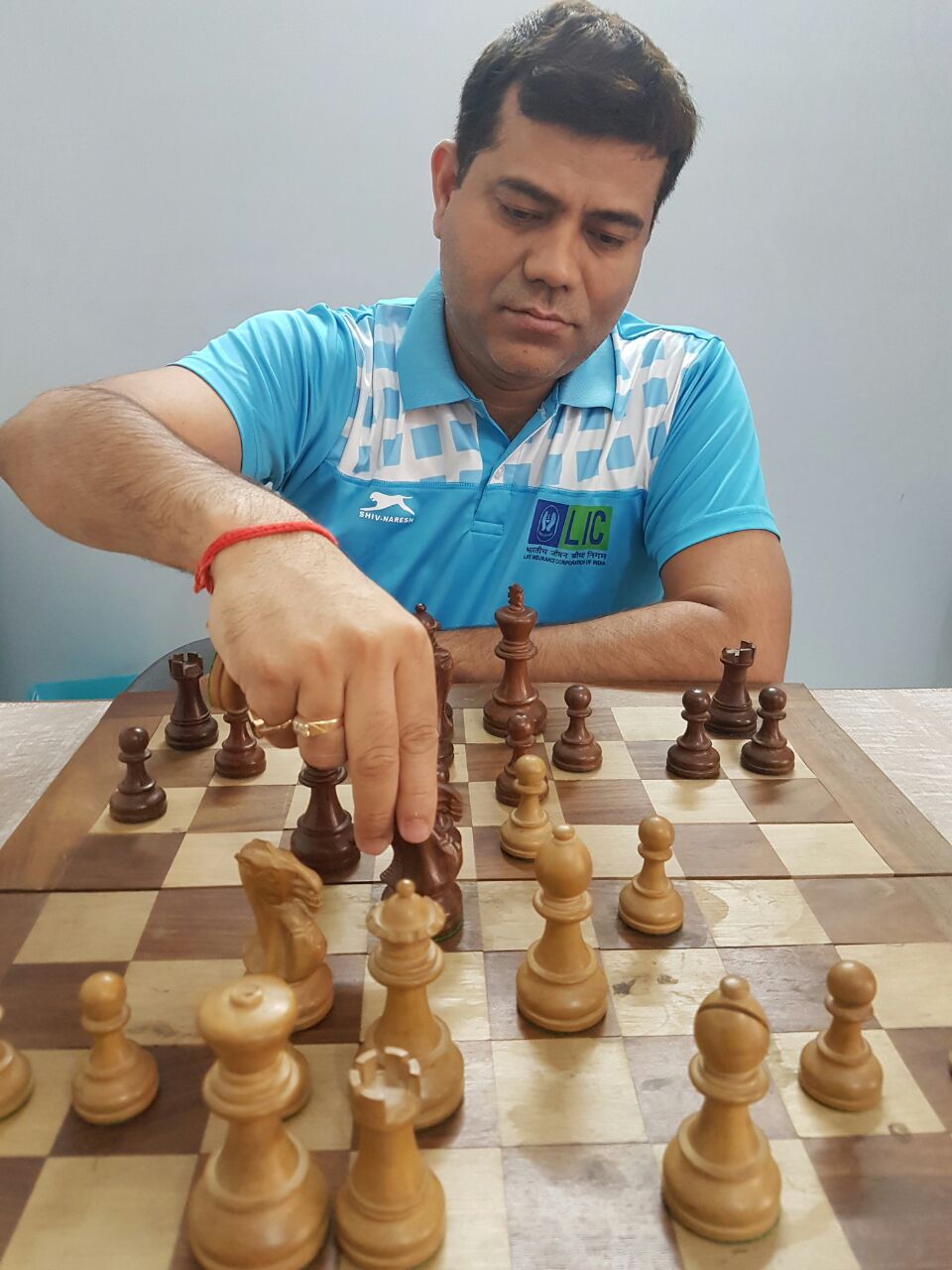
The only thing I knew about Nasir Ali Syed was that he loved chess very much and was ready to play a game of chess with anyone - no matter how strong or weak that player was. After playing a game he loved to analyze and during a tournament you could see him analyzing right from the end of one round to the start of next.
Nubairshah Shaikh:
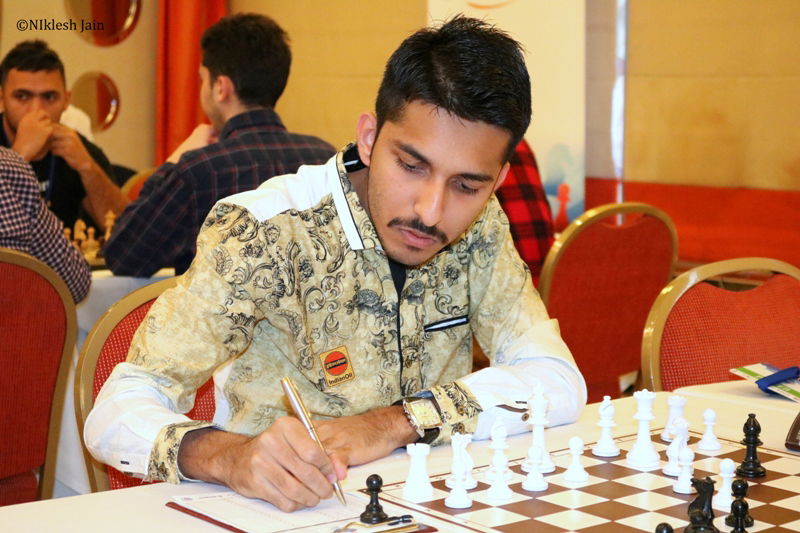
I played against Nasir Ali at the Syna International in Katni in 2010. I played the normal Queen's Pawn Opening and in the Queen's Indian Nasir Ali sir began to attack in an ingenious fashion with the moves h6-g5. He then castled long and if he had continued with h5-h4 I am sure I would have been in big trouble. I have attached the game below for the world to see what an amazing player Nasir Ali sir was even at the age of 75. Our game ended in two hours, we began the analysis session. And believe it or not, we analyzed for nearly two and a half hours. This was the first time that my analysis session had lasted more than the duration of my game! This experience showed me how much Nasir Ali sir loved the game of chess.
Facebook messages:
A lot of people sent us messages on Facebook about their experiences of meeting Nasir Ali. Here we reproduce some of them:
Abhishek Pandey: I played with him in 2006 in a state level rating tournament in Varanasi. I had just started playing chess back then. In the endgame (with equal material) he dominated with his double bishops and won the game. The way he did this was a great learning experience for me back then as a budding chess player. He will always be an inspiration. RIP sir.
Roopali Sharma: It is a big loss in the field of chess. I got an opportunity to meet him at Udaipur though he was from Lucknow. He taught me good moves in the same tournament. He told me that he started playing chess at the age of 19 and became a National Champion so there is no age limit to start any work.
Vedant Goswami: Had the opportunity to interact with him in the late nineties and early twentieth. Such a humble gentleman. Still remember the slow motion moves he used to make. May his soul rest in peace.
What can we learn from a legend like Nasir Ali:
Nasir Ali started playing chess somewhere around the age of 19 years! By the age of 31 he was already the best player in India winning both the National B and National A championships in 1967 in Pune - a record which no Indian has been able to eclipse! He had absolutely no coach, or books to learn chess from. He just learned the tricks by playing a lot of games and then analyzing them, trying to find where he was going wrong. He reached a career high rating of 2385 and beat many grandmasters and top players of India and the world. He played chess until the last years of his life and loved the game immensely.
Nasir Ali teaches us the following:
1. There is no age limit to excel at anything. If you put your mind and efforts to it, you can succeed in just about anything that you want to at any age.
2. Analyzing your games is very important. More than books or coaches, if you can try to analyze your games, understand your weaknesses and improve upon them, then you can almost certainly become a stronger chess player.
3. When chess becomes your life, money, Elo, titles, everything is secondary. You just enjoy the struggle of the game and your entire life revolves around the 64 squares and 32 pieces.
4. It is more important to be a good human being than a good chess player. Nasir Ali was kind, soft spoken, humble and spoke with just about everyone who would like to learn a thing or two from him.
Nasir Ali Syed, a great fighter of Indian chess, is no more, but his moves, his games and his legacy live on!
Special thanks to Satendra Chess and Vikash Nishad for their contribution in this article towards the story of how Nasir Ali started playing chess.
Related articles:
80-year-old Nasir Ali leads in Udaipur
Tribute to Nasir Ali in Hindi by Niklesh Jain

